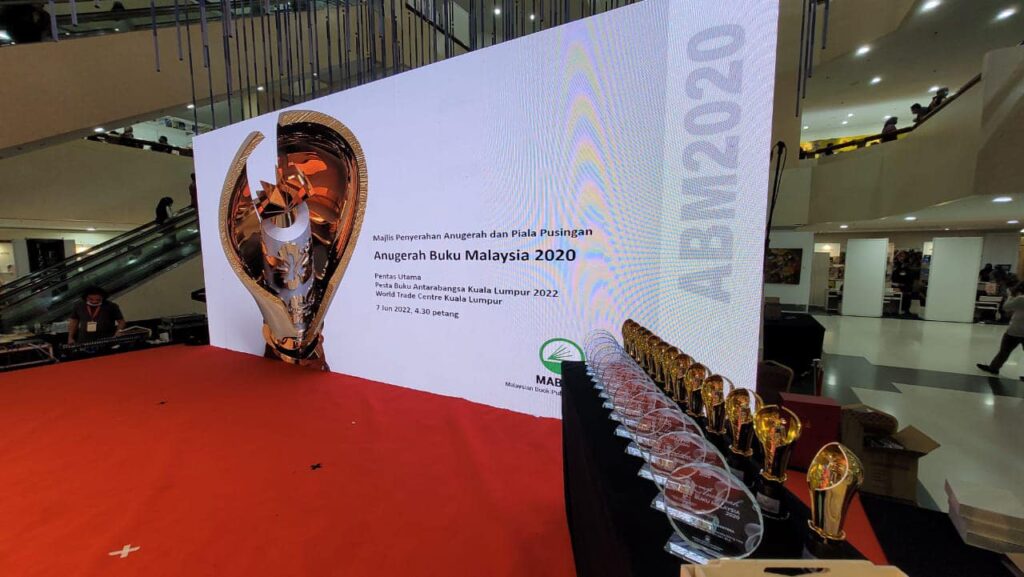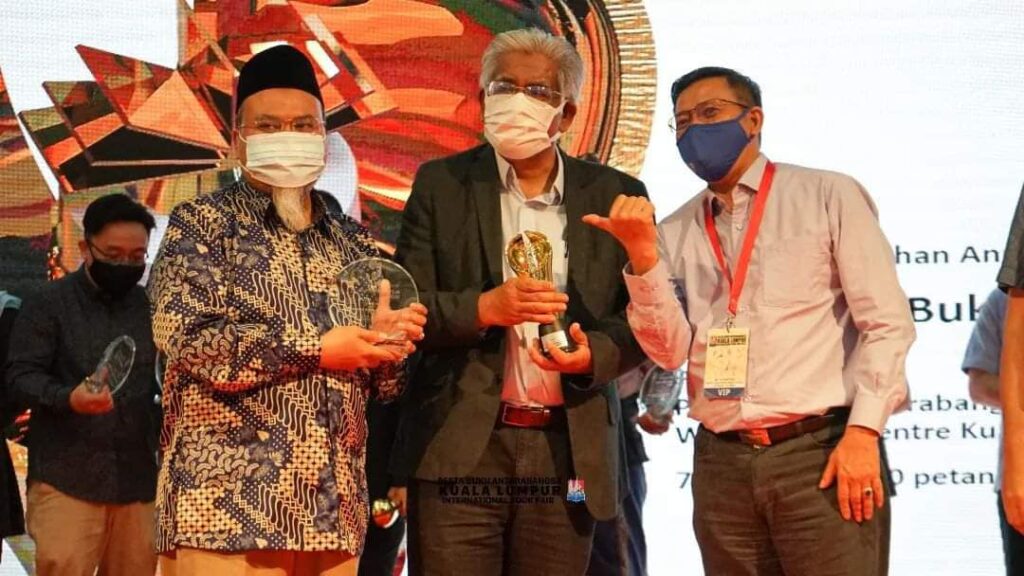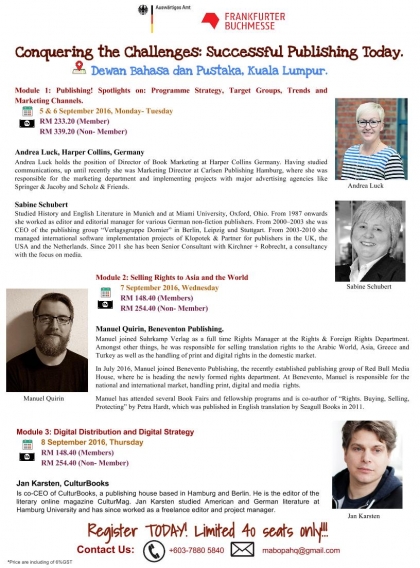Freedom of expression and freedom to publish are human rights under Article 19 of the Universal Declaration of Human Rights. The promotion and defence of freedom to publish is the fundamental subset of freedom of expression which is paramount for any democratic system to function adequately. It is considered as the mainstay of democracy and essential for a thriving civil society.
In the Malaysian context, the rights and liberties of the individual are recognised in the Federal Constitution of the country. The original Constitution was first introduced as the Constitution of the Federation of Malaya on 31 August 1957 (Independence Day) and subsequently as the Constitution of Malaysia on 16 September 1963 (Malaysia Day).
Article 10 of the Federal Constitution declares categorically in Clause (1) (a) that “every citizen has the right to freedom of speech and expression”. The article also guarantees Malaysian citizens the right to freedom of assembly peacefully and freedom of association. It gives the right to seek and disseminate information, and the right to be informed of various events of importance to all citizens. As in many countries, the freedom of expression in Malaysia is not absolute but subject to several restrictions as it carries with it special duties and responsibilities. These restrictions, provided by law, are necessary for respect of the rights or reputations of others, and for the protection of national security, public order, public health or morals.
Early Publishing and Printing
Evidence has shown that early Malay writing began in the 14th Century, and up to the 19th Century, thousands of Malay manuscripts in Jawi and Romanised scripts had been written and produced on paper using ink. The earliest printing press in Malaya, however, was established in 1806 in Penang by Andrew Burchet Bone who was given a license to publish a newspaper called The Government Gazette. (Bloomfield, 1979). The first locally printed book in Malay was probably published in Melaka in 1817 by the Mission Press (Proudfoot, 1989).
According to Proudfoot (1989), from 1817 to the 1860s, printing was the preserve of the Christian missions. But during the half-century from 1860 to 1910, a flourishing Malay book trade sprang up in the Straits Settlements with a large number of Malay lithographs printed by commercial publishers. Of the Malay-language books, most were published by local Malay or Javanese publishers, mainly based in Singapore. Other significant categories of publication were Christian missionary tracts published by the Christian missions, school books published by private publishers who were sponsored by the government, Islamic books published by private publishers and Baba fictions published by Baba printers.
By 1920 Malay publishing was considered to have crossed a watershed (Proudfoot, 1989). This is due to the improved communication and the rapid socioeconomic development especially in the Straits Settlements. Malay newspapers and magazines had begun to appear and circulate among the communities who had become literate with the introduction of education opportunities. Together with the development in journalism, different book genres had also appeared such as creative romantic prose fiction, and translations of fiction from Arabic and English sources.
Malay book production between 1887-1920 was carried out through the lithographic technique which comprised about 39% (Proudfoot, 1986). More and more printers are using the letterpress printing technique. Between 1920 and 1950, about 170 publishers and 120 printers were found to be operating during this period mostly in the state of Penang, Perak, Johor, Kelantan, Selangor and Singapore (Md Sidin, 1998). The provided opportunities for the local literary and non-literary works to thrive.
The top ten publishers during this period were Muhammad Ali al-Rawi, Translation Bureau, Ahmad Press, Abdullah Nurdin al-Rawi, Sentosa Store, Qalam Publishers/Kenari, P.BM.P.B., Methodist Mission, C.Dabab & Co., and Peranakan Book Boy. Among the most active printers were Persama Press, United Press, Ahmadiah Press, Malay Press, Malaya Publishing House, Jelutong Press, Jawi Press, Khai Sing Press and Jamiliah Press. As for authors, Dato Haji Ahmad Said Haji Sulaiman was the most prolific followed by Ahmad bin Abdullah, Wan Boon Seng, Abdullah Sidek, Shamsuddin Salleh, Syed Syeikh Ahmad al-Hadi, Abdullah Abdul Hamid al-Edrus and Umar bin Muhammad Khan (Md Sidin, 1998). While English books were mostly written by colonial officers serving in Malaya, the Malay publications were written by teachers and journalists.
Pre-Independence Legislations
The earliest legislation related to publishing in the pre-independence Malaya was “The Book Registration Ordinance 1886,” introduced by the British Colonial government. This Ordinance was to provide for the registration of and the preservation of copies of books printed in the Straits Settlements, namely Singapore, Penang and Melaka and extended later to other States such as Perak (1985), and Selangor (1989). However, this Ordinance also stipulated that all printers must have a license to operate the printing press.
Other legislations under the British Colonial government which monitored and restricted the freedom of expression include the Imperial Copyright Act 1911 which was modified for application to the Straits Settlements in 1914, Seditious Publications Ordinance 1915, Printing Presses Ordinance 1920, Undesirable Publications Ordinance 1938, Official Secret Ordinance 1935, and Emergency Regulation (Publications) Order 1939.
In June 1948 a state of emergency was declared in the British colony of Malaya when the Malayan National Liberation Army which was the armed wing of the Malayan Communist Party began a guerrilla insurgency to overthrow the British colonial administration in Malaya. It was during this time that the colonial government introduced the Printing Ordinance 1948 in order to counteract the Communist activities that were seen as a threat to the government. Under the Ordinance, all printing presses required a registration and license approved by the Home Minister and the license had to be renewed annually. In 1971, the Ordinance was revised to become the Printing Presses and Publications Act after the 13 May 1969 race riots.
Copyright Protection
Copyright grants the authors incentives in the form of recognition and fair economic rewards. Authors are assured that their works can be disseminated without fear of unauthorized copying. In Malaysia such a right is regulated under the Malaysia Copyrights Act 1987 and common laws from other commonwealth countries which are binding in Malaysian legal court. The Malaysian Copyright Act 1987was enacted to make better provisions in the law relating to copyright in Malaysia. It repealed the Imperial Copyright Act of 1911 which was the copyright law used in British Malaya as well as throughout the British Empire during the colonial era.
Copyright is a non-registrable right in Malaysia but it enjoys automatic protection. Copyright owners, however, can claim ownership by way of a Statutory Declaration or by filing a Voluntary Notification at the Intellectual Property Corporation of Malaysia (MyIPO). MyIPO is the Malaysian intellectual property agency under the Ministry of Domestic Trade, Co-operative and Consumerism to provide a range of intellectual property services, including domestic and international IP applications, protection, management and operation. With the enforcement of the Intellectual Property Corporation of Malaysia Act 2002, the agency was corporatised on 3 March 2003 and known as the Intellectual Property Corporation of Malaysia.
Malaysia became a signatory of Berne Convention for the protection of Literary and Artistic Works on 1 October 1990 and therefore, copyrighted work created in Malaysia would be recognised by each contracting member country of the Berne Convention. Among the Asean countries, Thailand was the earliest to join the Convention on 17 July 1931 while the Philippines made the entry on 1 August 1951. Membership of Berne Convention for other Asean countries are quite recent: Indonesia (1997), Singapore (1998), Vietnam (2004), Brunei (2006) and Laos (2012).
Safekeeping and preservation of publications
As for the safekeeping of published works, the colonial’s Book Registration Ordinance 1886 which became the Preservation of Books Act 1966 and later the Deposit of Library Material Act 1986 (Act 331) stated that all publishers in Malaysia are required to submit their published materials for protection and preservation at the National Library. Five copies of books or serials, maps, charts and posters must be submitted while for non-printed materials such as films, videos, electronic media and microphones, two copies must be submitted to the National Library.
The National Library of Malaysia is the implementing agency for the Deposit of Library Material Act 1986. This Act stipulates the purpose and objectives of the National Library as the National Depository Centre to provide for the conservation and use of library material published in Malaysia. It is also to create standard bibliographic record of library materials published in Malaysia and to maintain statistical records of the materials. The National Library was established by the National Library Act (Act 80) passed in 1972 to make available for the use of present and future generations a national collection of library resources and to facilitate nation-wide access to library resources available within the country and abroad.
Printing Presses and Publications Act
One of the acts of law which regulate the freedoms of expression as granted by Article 10 of the Malaysian Constitution is the Printing Presses and Publications Act 1984. The objective of this Act is to govern the usage of printing presses, production, reproduction, importation and distribution of publications in Malaysia. This Act replaced the Printing Presses Act 1948 and the Control of Imported Publications Act 1958. Section 3 (1) of the Act states that “no person shall keep for use or use a printing press unless he has been granted a licence.” Under the 2012 amendment of this Act, Section 3 (3) mentions that: “The Minister may grant to any person a licence to keep for use or use a printing press and he may refuse any application for such licence or may at any time revoke or suspend such licence for any period he considers desirable.”
Any person who keeps for use or uses a printing press without a valid licence will be guilty of an offence and upon conviction, he or she may be liable to imprisonment for a term not exceeding three years or to a fine not exceeding twenty thousand ringgit or to both. In addition, the printing press used shall be seized.
Part IV of the Printing Presses and Publications Act 1984 discusses the “control of undesirable publications,” and authorises the government to prohibit the printing, importation, production, or publishing of any material that is “in any manner prejudicial to or likely to be prejudicial to public order, morality, security;” is likely to “alarm public opinion,” or likely “to be contrary to the law or is otherwise prejudicial to or is likely to be prejudicial to” public or national interest.
This 2012 amendment repealed a provision that required all publishers and printing firms to obtain an annual operating permit, but retaining most of the other restrictive measures, including the home minister’s authority to suspend or revoke publishing licenses. In Section 12, under “Validity of licence and permit” the amendment says: “A licence or permit granted under this Act shall be subject to such conditions as may be endorsed in the licence or permit and shall remain valid for so long as it is not revoked.”
Subsection 6(1) of the original Act is amended by deleting the words “in his absolute discretion” referring to the home minister’s diecresion in revoking or suspending a newspaper license. The Home Minister no longer enjoys “absolute discretion” in performing his powers as previously stated in the original Act. In other words, he still has the powers but his decisions made under 1984 Act are subjected to judicial review.
Banning of Publications
Free speech and free expression of thoughts has long been considered as a challenge and censorship has been used as a legitimate instrument for regulating the moral and political life of the population. Laws were used to restrain the press and literature and during the British colonial time, some laws used to curb literature include the Press Registration Act, the Customs Act, the Post Office Act, the Official Secrets Act, and various sections of the Penal Code.
After Independence, the Malaysian Government enacted legislation banning, and in some cases criminalising publications. These laws involve bans on statements and words considered as incitement to violence, offensive and hateful or on certain topics related to sex, nudity, pornography, and homosexuality. As Malaysia battled a Communist insurgency, early bans focused on Communism and politics as well adult publications, but later sensitive subjects include political ideologies, racial issues and religion.
It was reported that Malaysia banned 1,695 books from 1971 to 2017 which include 556 books in Malay, 516 in English and 450 in Chinese (Ooi Hoi Kin, 2017). Most of the banned books in Malay were on topics related to sex, nudity and pornography while others were on religion and politics. The Malay Dilemma by Mahathir Mohamad, for example, was banned for 11 years since its publication in 1970 and the ban ended when the author became Prime Minister in 1981. In 1994, a total of 75 titles by Darul Arqam, a Kuala Lumpur-based Islamic religious sect, were banned (Roosfa Hashim, 2006) when the movement were outlawed nationwide through a ruling issued by the National Fatwa Council on 5 August 1994 and the leaders were arrested under the Internal Security Act. It was viewed by the Department of Islamic Development (JAKIM) that the movement had become a militant group and was actively exposing deviant activities as well as practising deviant teaching.
The recent years saw the banning of several literary works. Award winning writers, Shahnon Ahmad had one of his novels banned in 2000, and Faizal Tehrani had at least seven of his works outlawed. A political cartoonist, Zulkiflee Anwar Haque or popularly known as Zunar was one of the government’s harshest critics when Barisan National was in power. Zunar had a number of his books confiscated and his published works banned. He was arrested and detained in 2016 and he had nine sedition charges against him and could have faced 43 years in prison if he was proven guilty. However, in 2018 he was (2018), he was acquitted of his sedition charges.
News media which are heavily controlled by the government has become easy target. In 1987 during “Operasi Lalang”, a nationwide crackdown purportedly to prevent the occurrence of racial riots, two major daily newspapers, The Star and Sin Chew Daily, and two weekly newspapers, The Sunday Star and Watan, were closed down for several months. Their publishing permits were also suspended temporarily. Most of the staff working for the banned newspapers were laid off or otherwise threatened with prison and detainment, under the Internal Security Act. In 2009, several newspapers linked to opposition parties were banned in a clampdown including Harakah, which is linked to the Islamic party PAS, and Suara Keadilan of Keadilan party.
The Edge Weekly and The Edge Financial Daily were suspended for three months in 2015. It was claimed that the suspension by the Home Ministry was due to biased reporting by the newspapers and consequently it had created negative public perceptions towards 1MDB, which was a problematic government business venture, and that the published news reports were based on doubtful and unverified information, which might be prejudicial to public order and national interest.
Under Section 4, any person found guilty of printing or producing material which is against public decency or which contain sedition and incitement to disobedience to the law, and which may lead to disorder, hostility and disunity shall be imprisoned for a term not exceeding three years or fined not exceeding RM20,000 or both. Any person who possesses any prohibited publication without reasonable excuse shall, on conviction, be fined not exceeding RM5,000. Under Section 5 (1), the Act states that it is an offence to print, import, publish and distribute a newspaper without permit. Those found guilty of committing these offences shall be imprisoned for a term not exceeding three years or fined not exceeding RM20,000 or both.
Other Legal Restrictions
Other acts of law which regulate the freedom of expression granted by Article 10 of the Federal Constitution include the Official Secrets Act, which makes it a crime to disseminate information classified as an official secret. The Sedition Act 1948 makes it an offence to engage in acts with a “seditious tendency” that cause “hatred or contempt, or excite disaffection” against the government or its ruler, as well as “seditious” speech questioning the special privileges of the Malay people. Speaker’s intentions are irrelevant to any defense, and those convicted face up to three years in prison and a fine up to RM5,000, or both. This law has been used in recent times to charge, , among others, high-profile academicians and commentators.
Defamation and libel laws are widely accepted as exception to the right to freedom of expression so long as they are limited to restricting a narrow category of speech and do not impose criminal sanctions or disproportionate civil penalties. Defamation and libel laws are designed to protect the public reputation of individuals by sanctioning the dissemination of false statements of fact damaging to an individual’s reputation.
The Public Order (Preservation) Ordinance 1958 allows the Police to declare certain areas “restricted”, and to regulate processions or meetings of five persons or more. The maximum sentence for the violation of a restricted area order is imprisonment of 10 years and whipping.
The Internet and new information communication technologies (ICTs), which are now an integral part of everyday life for many individuals worldwide, have massively expanded the ways in which people impart and receive information, and the channels through which expression and the receipt of information can occur. However, restrictions on ICTs, including the Internet, are on the rise, particularly legal restrictions that attempt to closely control the flow of information online. In Malaysia, regulations governing ICT, including the Internet are under the jurisdiction of the Ministry of Communications and Multimedia which oversees the Malaysian Communications and Multimedia Commission . The 1998 Communication and Multimedia Act gives the ministry a range of powers, including licensing the ownership and operation of network facilities.
CONCLUSION
It is universally acknowledged that the right to freedom of expression and freedom of publication is a foundational human right. However, it is also universally recognised that it is not an absolute right. While a thriving civil society depends on an active, expressive citizenry, it also depends on certain legal protections to ensure that expressive activities do not harm others and in the Malaysia case, it has developed certain framework of limitations.
After the May 2018 General Elections, when the new coalition government took over, freedom of expression in general is receiving breath of fresh air in Malaysia. The general environment for journalists and writers is much more relaxed and they have been able to resume writing without much fear of harassment. Malaysia’s ranking on the World Press Freedom Index 2019 has improved significantly compared to the previous year. This indicates that global perception about Malaysia’s freedom of expression has become more positive. This development is important to motivate Malaysian writers to publish and create better quality contents but content creations are not only dependent on regulations and legislations. Malaysian publishing practitioners need to change and be more competitive in the ways they create, manage and operate this national and cultural heritage.
REFERENCE
Bloomfield B.C. (1979). A.B. Bone and the Beginning of Printing in Malaysia, London: India Office Library and Records Report.
Maizatul Nazlina, (2018), “Zunar sedition case withdrawn”, in The Star, 31 July.
Md Sidin Ahmad Ishak (1998). Penerbitan dan Percetakan buku melayu, 1807-1960. Kuala Lumpur: Dewan Bahasa dan Pustaka.
Md Sidin Ahmad Ishak (2006). Suku Abad Pesta Buku Antarabangsa Kuala Lumpur, 1982-2006. Kuala Lumpur: Majlis Buku Kebangsaan Malaysia.
Ooi Kok Hin (2017). The Policing and Politics of the Malay Language. Penang: Penng Institute.
Portal Rasmi Perpustakaan Negara Malaysia, accessed at 25 May 2019 at https://www.pnm.gov.my/index.php/pages/view/139
Proudfoot, Ian, (1986). “A Formative Period in Malay Book Publishing”in Journal of the Malayan Branch of the Royal Asiatic Society, 59 Part 2, pp. 101-132.
Proudfoot, Ian, (1989). Major Library Holdings of Early Malay Books” in Kekal Abadi 8(1), March, pp 7-17.
Roosfa Hashim (2006), Pengharaman Bahan Penerbitan di Malaysia, in Md Sidin (2006), Suku Abad Pesta Buku Antarabangsa. Kuala Lumpur, 1982-2006. Kuala Lumpur: Majlis Buku Kebangsaan Malaysia, pp 131-144.
United Nations Universal Declaration of Human Rights, accessed 16 May 2019, at http://www.un.org/en/universal-declaration-human-rights/
International and Comparative Law Analysis on FCA, accessed 16 May 2019, at http://komas.org/download/lena_campaign_materials/International-and-Comparative-Law-Analysis-on-FCA-April-1-2014-Report_2.pdf
United Nations International Covenant on Civil and Political Rights, accessed at 16 May 2019 at http://www.ohchr.org/en/professionalinterest/pages/ccpr.aspx






















